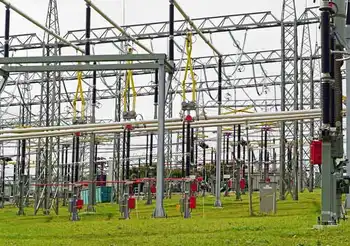Feds Want Utilities to Meet Standards
By Associated Press
Substation Relay Protection Training
Our customized live online or in‑person group training can be delivered to your staff at your location.

- Live Online
- 12 hours Instructor-led
- Group Training Available
Pat Wood, chairman of the Federal Energy Regulatory Commission, said the agency could act even if Congress fails to pass an energy bill that includes mandatory reliability standards and penalties for violators.
Congress has given the commission an extra $5 million, which Wood said would pay for closer monitoring of electric utilities. The agency is setting up a reliability division and plans to look at what training and skills are needed to best operate the nation's electric grid, Wood said.
In addition, Wood told reporters that the agency was looking to see what else it could do to ensure that electric utilities were complying with reliability standards. For example, a task force investigating the August's blackout found that operators at Ohio's FirstEnergy Corp. were inadequately trained and that computer problems prevented them from realizing immediately what was going on.
He said the commission cannot wait for Congress. ``We've got to get started today,'' he said.
While the electric industry could challenge the regulators' powers in court, Wood said he would ``like to meet the utility that wants to overturn grid reliability standards.''
An official of the Edison Electric Institute, the trade group for the electric utility industry, said FERC should play an oversight role, not the lead role, in ensuring the reliability of power.
``We do not support an approach where the commission would seek to go out and do the job that industry experts have been doing for years,'' Executive Vice President David Owens said. ``The commission has a supportive role, not a lead role.''
Voluntary standards have been set by the industry-sponsored North American Electricity Reliability Council. There are no penalties for failing to follow them.
The need for stronger standards came to the forefront after an area that included 50 million people in eight states and Canada lost power in the nation's worst blackout. ``This blackout was largely preventable,'' Energy Secretary Spencer Abraham said when the task force report was released in November 2003.
Wood did urge Congress to pass the energy bill, which stalled in the Senate in the fall. Several senators objected to a provision protecting manufacturers of the gasoline additive MTBE from lawsuits after the chemical was found to have contaminated groundwater in as many as 28 states.
Two Republicans, House Majority Whip Tom DeLay and Rep. Joe Barton, both of Texas, where most MTBE is produced, insisted that the bill include the liability provision. The legislation also has $23.5 billion in tax breaks. Since 1999, the energy industry has contributed $137 million to federal candidates and the political parties, three-fourths of that to President Bush and the Republicans.
Wood declined to talk about possible compromises, but said that if the overall energy bill remains stalled, he would support separate legislation on reliability. Congressional Democrats have unsuccessfully proposed such legislation.
--------
On the Net:
Federal Energy Regulatory Commission: http://www.ferc.gov
North American Electricity Reliability Council: http://www.nerc.com











